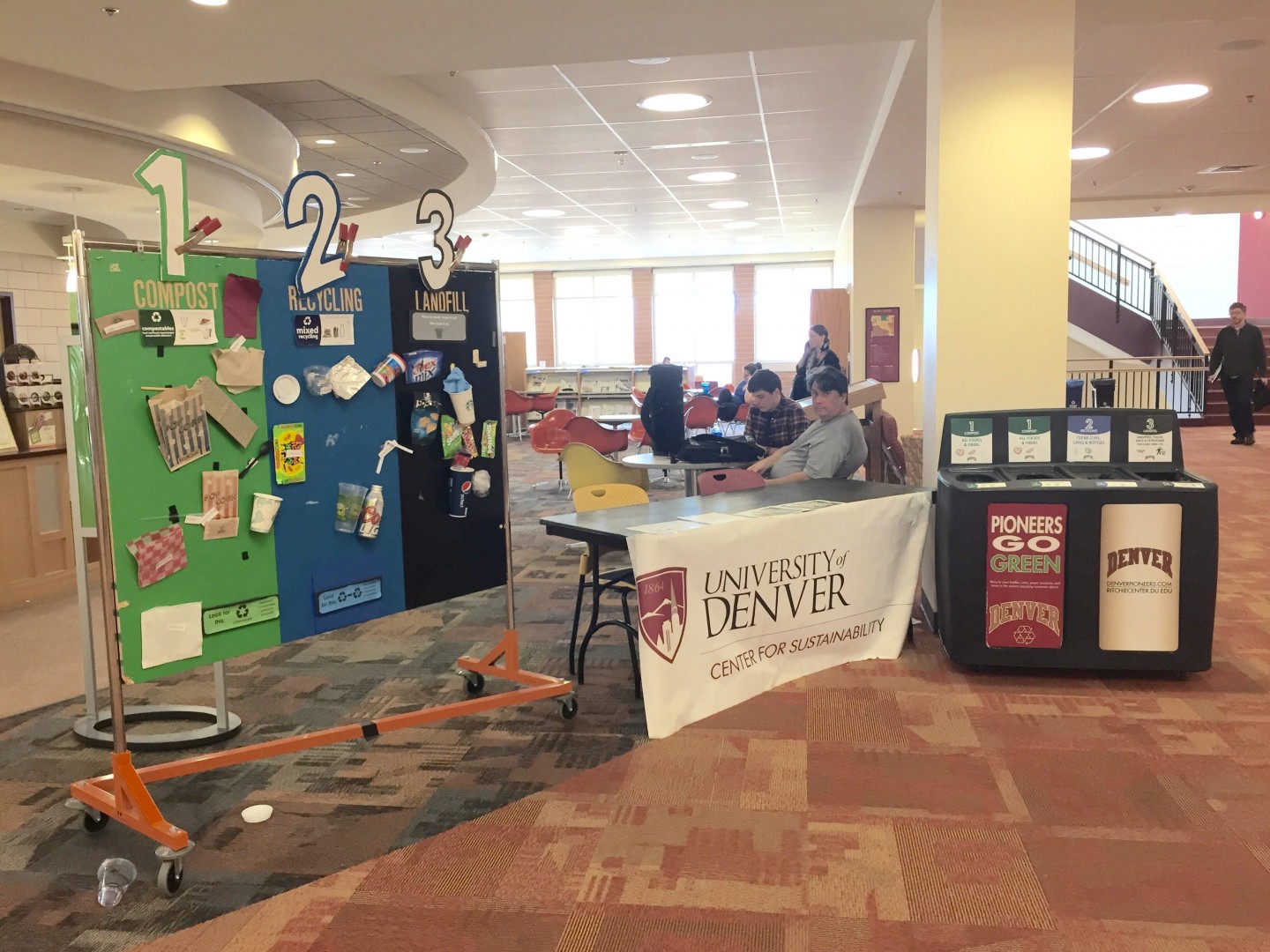Last week, the Anderson Academic Commons hosted DU’s first Zero Waste Midterms, an event intended to make the campus more sustainable. Organized by the Anderson Academic Commons Sustainability Committee and the Center for Sustainability, the week-long effort focused on educating both students and faculty in a variety of ways on how to properly deal with their waste.
At the end of the week, an audit was planned to evaluate AAC’s waste management, but due to a miscommunication, the custodial crew did not set aside the waste and took it away as usual. Chad King, the director of the Center for Sustainability, expressed disappointment about not having any data to present from the event, but says these kinks will be worked out for future events.
According to event organizers, one of the most visible aspects behind Zero Waste Midterms was the distribution of tri-bins (bins with three slots designated for recycling, compost and landfill trash) throughout the building. Up until this time, the only place to compost items was by the cafe on the main floor according to Jenny Blowers, Social Sciences Librarian and Chair of the Anderson Academic Commons Sustainability Committee.
“It’s much more convenient for people now with the tri-bins on each floor,” said Bowers. “By making these options more visible, we hope to encourage people to recycle and compost whenever possible.”
Informational tables staffed with Anderson Academic Commons Sustainability Committee members, volunteers and students that work for the Center for Sustainability, who answered questions and offered advice about waste, were also set up on each floor of the building. The staff also handed out prizes, such as t-shirts and mugs, to people in the building who were being sustainable in any way–mainly those who simply put their waste in the proper bins.
Another section of the event was a pizza giveaway intended to encourage proper composting through the incentive of a raffle. King explained that pizza boxes can play a big part in the DU campus becoming more sustainable.
“Pizza boxes are one of the harder pieces of trash to deal with in the library because they’re so big – they will clog up a whole trash bin and cause it to overflow,” said King. “And they are actually compostable. If it’s clean of all oil and grease and whatever else, the cardboard is recyclable, but once it has that kind of food contamination on it, then it becomes a compostable item.”
In response to the part pizza boxes play with sustainability, event organizers set up a raffle in which any student who brought in a pizza box for the compost bin was entered to win a free pizza from Kaos Pizza.
“It’s just a way of trying to get those boxes to the appropriate place and not have them plugging up the waste stream in other places,” said King.
However, according to Bowers, this is only the beginning of these types of events on campus. Zero Waste sports games have already been taking place, and another sustainable-focused push in planned for week 10. “We’re planning to hold Zero Waste Finals, and hope to see everyone participating,” she said. “We’re all in the process of learning about this, and working together can help us move forward to make our campus more sustainable than ever.”











